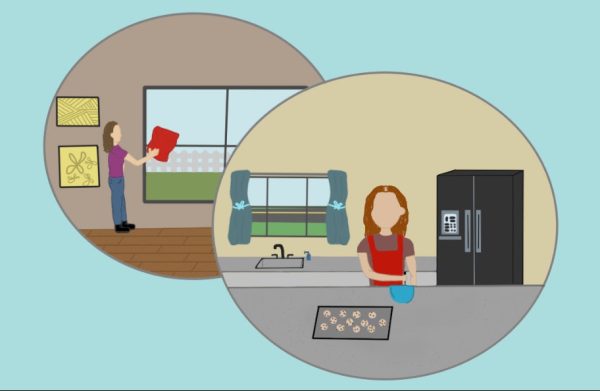Planning around procrastination
The importance of planners in the daily lives of high schoolers
December 20, 2019
“Alright class, I’m coming around to check the homework assigned last night.” The words flow through the air and fear sets in your chest. You can hear the anxious thumping of your heart and feel sweat begin to drip.
“Was there actually homework last night? I don’t remember that,” you think to yourself. Your teacher comes around, exhausted expression on their face. They know you didn’t do it, but they still let you pull your bag up from the floor as slowly as possible. “I got it! I just gotta look!” You dig and dig, fully aware of the nonexistent work in your bag, attempting to gain some type of sympathy from the teacher. “Can you come back to me?” you ask with a nervous smile.
An endless amount of excuses are given to their parents and teachers, reasoning as to why there are so many red “missing assignments” within their grade book. Often times, students rationalize that a large overflow of homework and tests results in an unorganized lifestyle, therefore creating stress. However, the investment of a school planner helps to mitigate all of these bothersome issues.
Evidently, a poll conducted by the Crusader on Dec. 12 and 13, 2019 of 465 students revealed that 36.2 percent of Bonita Vista High (BVH) students own a planner. Furthermore, it found that 67.7 percent of students agree that planners “would effectively help students organize their homework due dates and test days.” Evidently, many students believe that it would be beneficial to have a school planner to improve themselves academically.
According to psychologist Maggie Wray, Ph.D., memories are triggered by physical cues, not dates or times. Therefore, it is unreliable to put complete trust in your brain to make note of vital events or tasks such as homework assignments or project due dates. For this reason, school planners are imperative. The use of school planners allows students to arrange assignments and due dates on their own, as well as create external reminder systems to stay on track.
In one telling experiment conducted at the University of Virginia, students enrolled in a regular college class were given set due dates for three papers, while others were told they could submit the papers at any time. Predictably, those students didn’t plan their work periods, submitting inferior papers at the end of the semester.
In that same experiment, a third group was asked to set due dates of their choice at the start of the semester. The study found that about half distributed dates across the semester; the other half made all three papers due on the last day, and again, wrote inferior papers. Left to their own devices students do not plan, but even when professors require them to plan, half do not have the skills or means to plan for their papers.
Using a planner allows you to schedule events, appointments, errands, and tasks so that you know what to expect and don’t run out of time. Psychologist Barbara Markway, Ph.D., explained in her publishment in Psychology Today, that “planners allow for effective scheduling, granting more time for leisure and being with family.
Moreover, there is a large probability for miscommunication to take place when teachers convey information to parents through students. The use of planners helps to overcome this challenge as it serves as an excellent platform for a line of communication between students, parents and teachers.
Since high school comes with a lot of responsibilities—whether it be homework, project deadlines or test dates—it can become stressful to maintain peak academic performance while juggling social accountabilities. With the help of a planner, this stress can be heavily mitigated and peak academic performance can be re-established. Reduce the stress of missed assignments and low test scores and establish a schedule through a student planner.











